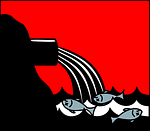Gender and the environment

Women in the south are affected greatly by environmental degradation, in the south women are responsible for all household duties. One of those duties, being able to retrieve water for their children and family, using another water location in order to wash clothing, also another location used for bathing. Although the women face dangers in going to the water and back to their home alone that isn’t the only thing to worry about. The major issue is the quality of the water, without any way of purifying or testing it’s quality. They depend on these water sources to cook, stay hydrated and care for their family.
Although Agarwal and Warren and Hobgood-Oster have their differences, they do have some commonalities. The commonality that stood out the most to me is their importance to let it be known the importance of women in relation to nature. Whether it be women within nature or the effects nature has on women and those around them. The difference is more of the generalization between referring to women as nature and nature having femanine qualities. Also with Warren and Hobgood-Oster having to live within those standards, and how binaries are so common; not only for women, but for everyone. Over time since the beginning of this life, women are meant to be producing and nurturing, caring creatures while men are meant to support and be brave. This is an issue I feel will forever be around unfortunately. Not everyone is raised with optimistic parents or even cultures for that matter and that way of living is instilled in some cultures and is very important in their way of living. I do believe that we as a society can withhold the standards of our culture without projecting them onto anyone else and being sure to have awareness of other lifestyles. It’s all about finding that happy medium and the right people to do it with, nowadays it is impossible to get a large group of people not even to agree, but just to respect the ideas and lifestyles of others! With Agarwal, the main concern is women and their families being affected by nature and the inability to provide them a safe and clean water source in order to maximize efficient health and sustainability in caretaking and living. Many countries simply lack the funds, awareness and resources in order to provide proper and safe living standards for villages, unfortunately it is not their fault. We, as other countries can help by sharing knowledge and awareness in order to carry over our ways of living in order to help other women, and families around the world.
As far as having to decide which perspective I find more interesting if difficult. I find both perspectives equally interesting, and I can relate to both of them. With Warren and Hobgood-Oster I can relate to the binaries, I think it would be fair to say at least any woman can agree that they have experienced nature/animal calling once in their lifetime. I do feel like that has been brought to the light and is spoken about more openly and frequently by women across the U.S. Also, the epidemic with the environment has taken a huge toll in the different ways you can choose to live, I say choose because although there are many alternatives and a way to make better choices in your day to day life, recycling, using reusable resources, being more conscious of your waste and how you dispose of it. Not everyone is willing to put in the effort and make that change, although the Earth’s wellbeing is at stake and our ability to live in a clean world, it is still not striking enough or even scary enough for some to care about. I do believe that both of these perspectives are important and should be broadcasted and discussed frequently to all audiences to bring knowledge and awareness across the globe.

Test